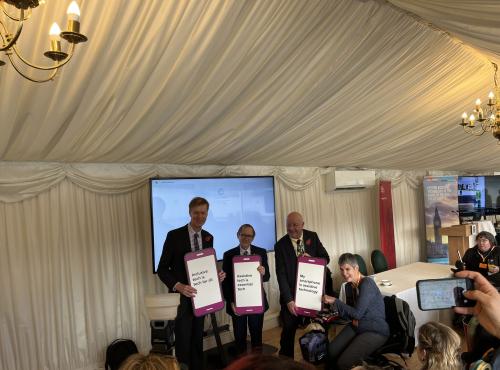Many young people don't work well within the current GCSE framework - what should the new Government do about it?
As we approach the snap General Election on 8th June, all eyes are on political party manifestos. These manifestos demonstrate each party’s policy priorities should it gain power – in this election cycle, there has been a lot of discussion around the education system, although this has mainly focused on school funding rather than exam frameworks.
For instance, News outlets have reported that the SNP is to increase the budget of head teachers in Scotland by £120m to invest in measures it believes would improve levels of literacy and numeracy; Labour has pledged to inject £5.6bn into a new national education service model; and the Lib Dems would spend £7bn to protect per-pupil funding.
An education policy which the Skills Commission has scrutinised, and will be examining in coming party manifestos, is compulsory GCSE English and Maths resits. Currently, learners who do not achieve grade 3 or grade D in GCSE English and Maths are required to re-take the GCSE again, until a higher grade than 3/D is achieved.
Following extensive pressure from across the sector, there were rumours that the Department for Education may change its position, which would have seen forced resits for GCSE English and Maths scrapped. The Education Secretary has in fact confirmed that the policy will not be scrapped, announcing in April 2017 that despite sector speculation otherwise, Government would continue to insist on GCSE Maths and English resits as a condition of provider funding.
The funding letter said:
“Full time students starting their study programme who have a grade three or D GCSE, or equivalent qualification in maths and/or English, must be enrolled on a GCSE, rather than an approved stepping stone qualification.”
The Skills Commission remains keen to see the resits policy updated. Last year the Commission published its report Spotlight on…Young people with below average academic attainment and the skills sector. The report highlights the pathways that young people take through GCSEs, the skills and further education system, and the ways that the government, local authorities and providers can support them, particularly in the light of increasing numbers of young people failing to achieve desired basic subject GCSE grades.
The report recognises that many young people do not work well within the GCSE framework. Low retake success rates show that young people with below average attainment struggle to succeed when pushed into GCSE retakes during 16-18 education. It goes on to state the opportunities to young people that alternative formats could provide in place of forced resits.
Specifically on the issue of compulsory resits at GCSE level, the Spotlight on… report highlights that in 2013/14 a mere 11.3% and 7% of those who hadn’t passed English and maths at the end of Key Stage 4 went on to achieve an A*-C in retakes that year. Indeed, for several years a greater proportion of those retaking English and maths GCSEs failed to achieve the benchmark grades compared to those who did.
One opportunity lies in the introduction of “post-16 modular GCSEs”. In a recent review of prison education, Dame Sally Coates advocated for the introduction of modular GCSEs for prisoners as part of reforms to allow inmates to develop base-level “job ready” skills and gain qualifications during their incarceration. For learners who may have struggled with the examinations the first time round, a similar approach or “post-16 modular GCSE” could be looked into as its flexibility could be better suited to non-academically inclined young adults.
Repeating failure is clearly of no benefit; it leads young people to disengage from learning, and negatively impacts their wellbeing and sense of self-worth.
The system needs to be changed to account for these young people and ensure they have the opportunity to gain qualifications to demonstrate their ability. At present, there has been little dialogue in General Election campaigning around the specific issue of GCSE resits or alternative models, so we are looking forward to examining how it may be addressed in party manifestos released this week.
The Skills Commission will continue to advocate for reform, whichever party is next to move into Downing Street.



